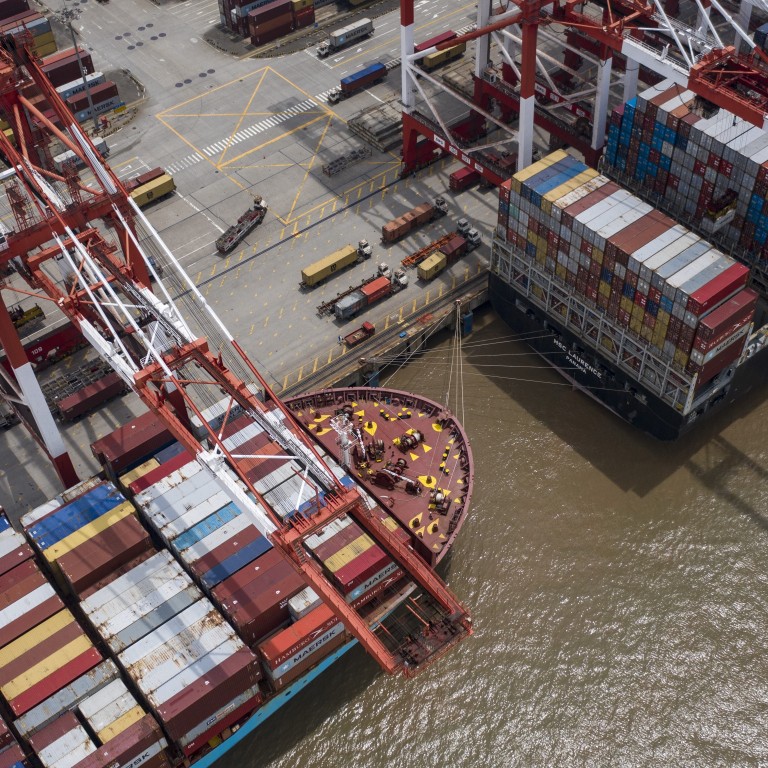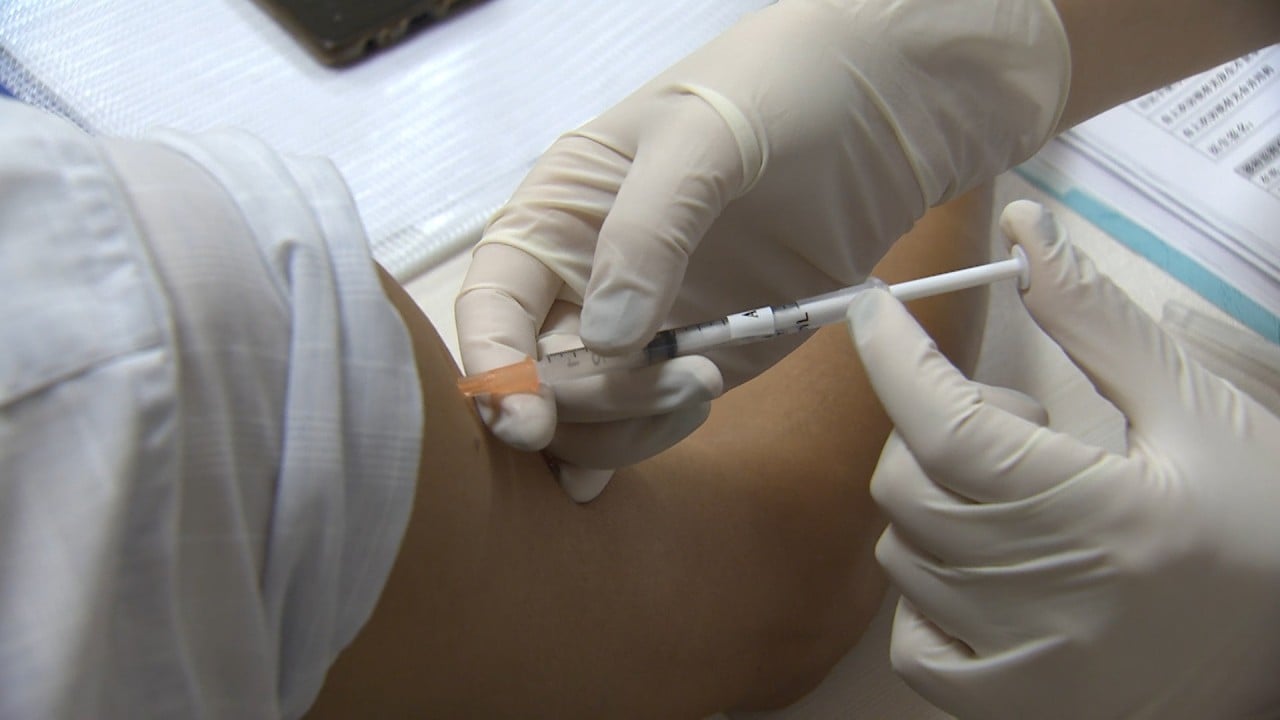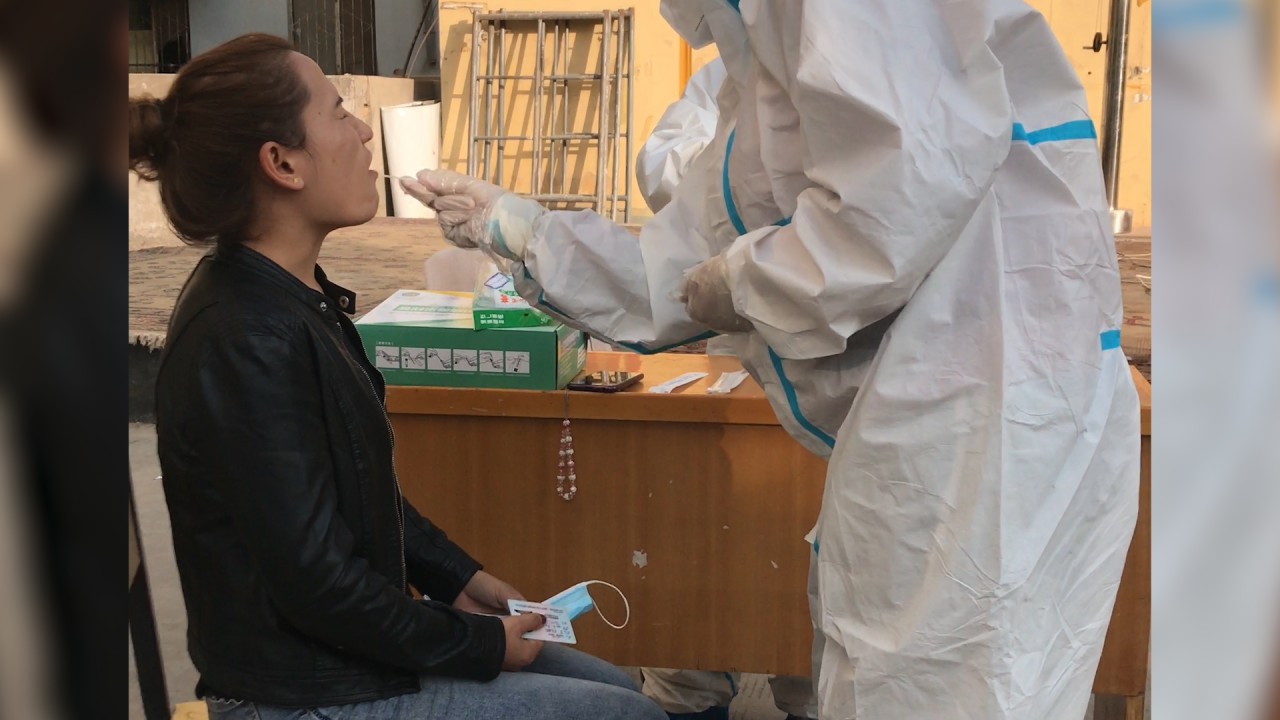
China to disinfect frozen food imports to curb coronavirus spread
- Packaging and transport vehicles are to be disinfected before they’re unloaded
- It comes after contaminated products were linked to cases among port workers
Packaging of imported frozen products and vehicles used to transport them are to be disinfected before they are unloaded, the guidelines on the National Health Commission website said.
The move comes after contaminated frozen food packaging was linked to cases among port workers, and as Shanghai on Monday reported that a 51-year-old cargo handler at the city’s Pudong airport had tested positive.
The man has been quarantined and more than 180 of his close contacts have been traced, according to Li Guohua, deputy head of the city’s Pudong New Area.
“They include 106 people who have been placed in isolation for medical observation, and another 75 who are on their way to the relevant centres for quarantine,” Li said.
“Our next step will be to carry out the necessary infectious disease investigations to determine the origin … administer nucleic acid tests … and to ensure we do a proper job in prevention and quarantine control,” he added.

02:38
Chinese Covid-19 vaccine developer Fosun Pharma optimistic about progress on mRNA jab
On Sunday, the northern city of Tianjin reported that a 47-year-old man had tested positive as an asymptomatic carrier. He was tested after being identified as a close contact of a confirmed case – a 38-year-old man who works for a cold storage company and had handled pork products imported from Germany.
Meanwhile, authorities in Taiyuan, in the central province of Shanxi, on Saturday said frozen ribbonfish imported into Tianjin from India had also tested positive for the coronavirus, according to state media reports.
Multiple cold-chain products imported into China have tested positive for the virus in recent months. In September, China suspended imports from 56 cold-chain food companies in 19 countries and regions where workers had been infected with Covid-19.

00:39
Xinjiang officials complete 4.7 million Covid-19 tests in Chinese city of Kashgar
Wang Guangfa, a respiratory expert at Peking University First Hospital, said several infections had been linked to imported cold-chain products and the transmission path needed to be stopped.
“The virus can live longer in a cold environment and once food is contaminated it can result in an individual being infected, then a group [of people]. So it’s absolutely imperative that the [transport vehicles] and packaging are disinfected to reduce this risk,” Wang said.
“It is most effective to control the virus at the source, instead of trying to contain it after it has spread,” he said, adding that cities like Hong Kong should also take a more careful approach to handling imported frozen food to avoid this possible transmission path.
China has largely brought local transmission of Covid-19 under control and has moved fast to respond to recent outbreaks with partial lockdowns and citywide screening.

